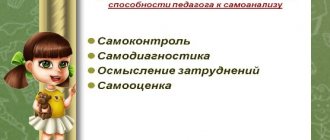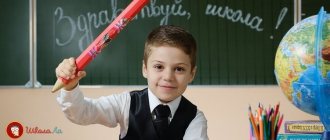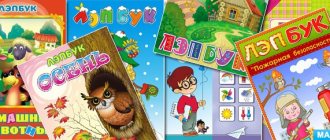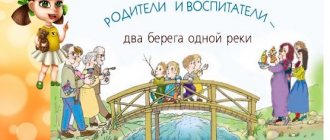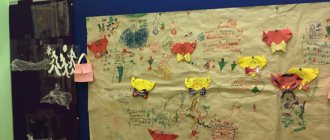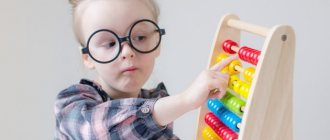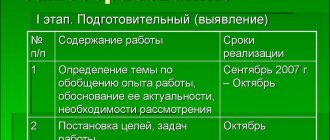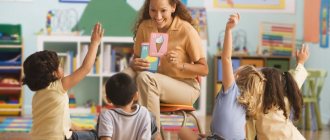From work experience “Teacher’s Self-Education Folder”
Moskina Nadezhda
From work experience “Teacher’s Self-Education Folder”
Municipal preschool educational institution kindergarten No. 1
TEACHER'S FOLDER
ON SELF-EDUCATION
Moskina Nadezhda Nikolaevna
teacher
“Didactic game as a means of environmental education of children of primary preschool age
ANALYSIS OF THE TOPIC ON SELF-EDUCATION
FOR 2022/2018 SCHOOL YEAR
GENERAL INFORMATION ON SELF-EDUCATION
The purpose and objectives of self-education on the topic
Purpose: to study the problem of using didactic games as a means of developing environmental education for children of primary preschool age
Job objectives :
1. Study and analyze psychological and pedagogical literature on the problem of using the possibilities of didactic games as a means of environmental education of a preschool child .
2. To study the features of children’s environmental education in order to build appropriate work on children’s environmental education through didactic games.
3. Determine the effectiveness of the use of didactic games as a means of developing an environmental culture.
Literature on the topic:
• Gubanova N. F. Development of gaming activities: First junior group. M.: Mozaika-Sintez, 2015. – 58 p.
• Solomennikova O. A. Introduction to the natural world in kindergarten: First junior group. M.: Mozaika-Sintez, 2014. – 48 p.
Whose experience is expected to be studied on this topic:
1. Bondarenko A.K. “Didactic games in kindergarten”
.
2. Nikolaeva S. N. “How to carry out environmental education of preschoolers in kindergarten.”
3. Udaltsova E. I. “Didactic games in the education and training of preschoolers.”
PERSONAL PERSPECTIVE PLAN
ON SELF-EDUCATION FOR THE 2017-2018 SCHOOL YEAR
The deadline for conducting the results on the topic of self-education is May 2018 .
Form and place of summing up - creative report (presentation)
Date Areas of work Ways to achieve
Within a month Work with documentation .
Studying the Law “On Education”
, other regulatory documents Acquaintance and analysis of documentation.
Until September 10 Planning work with children for the new school year. Studying literature on the problem, creating a work .
Until October 10 Creation of a card index “Didactic games on ecology in the 1st junior group”
Selection of material.
During the year, selection of literature on the topic of self-education . Working with a personal library, the Internet.
during the year Study of theory on the topic: “Didactic game as a means of environmental education of children of primary preschool age.” Acquaintance with literature on this topic, Internet resources:
KazEdu.kz›referat/129257 and others.
Until November 15 “Pick up a feather for the cockerel”
Creation of a didactic game for 1st junior group.
At the end of December, Thematic Teachers' Council
“Organization of the educational process through the integration of educational areas” Selection of material.
During the month “The importance of didactic games in a child’s life”
Studying articles in magazines:
"Preschool education "
"Child in kindergarten"
Until January 25 “Flower Glade”
Creation of didactic games for 1st junior group.
During the month “Didactic game as a form of development of young children”
Consultations and conversations
(individual and collective)
.
Until February 20 “Pets”
Creation of a didactic multimedia manual.
Until March 10 Didactic games Replenishment of the card index of didactic games for 1st junior group.
Until March 25 “Didactic games for children”
.
Until April 15, NOD “Kapelka visiting the guys”
using didactic games. Preparing for an open lesson.
Until the end of April “Wild animals and their young”
Creation of a didactic game in the form of a presentation.
At the end of May, Universal Education “How beautiful this world is, look...”
(Tasks of environmental
education ) Preparation and selection of material.
Speech at general education.
Until May 15 Creative report on the topic
“Didactic game as a means of environmental education for children of primary preschool age” (presentation)
Speech at the teachers' meeting.
From the experience of work “We are together: ways of cooperation between teacher and family” TEACHER: Galina Anatolyevna Kucherova WE ARE TOGETHER: WAYS OF COOPERATION between teacher and family The world of a small child is inextricably linked with.
On the topic: methodological developments, presentations and notes
An option for designing a booklet for self-presentation for a competition or certification.
This type of planning was developed for working with children with intellectual disabilities in the 1st year of schooling.
This type of planning was developed for working with children with intellectual disabilities for 2 years of study.
An approximate version of long-term planning of correctional work to familiarize preschool children with problems in intellectual development with elements of decorative and applied arts. T.
An approximate version of the design of correctional and developmental work on the topic “Introducing children of primary preschool age with problems in intellectual development to the origins of Russian culture in the field.”
Structure of a preschooler's portfolioDesign option.
Source
The concept of self-education: goals and forms
The very specifics of a teacher’s work, aimed at the upbringing and development of children, obliges him to constantly engage in a creative search for non-standard solutions, self-education, and improvement of professional skills, as well as personal qualities. A good specialist cannot be passive: competence and initiative are required of him every day.
In addition, the level of proficiency in topics and plans in accordance with the Federal State Educational Standards (federal state educational standards) directly affects the competence, qualifications and even monetary remuneration of a specialist. We should not forget that parents, when choosing an educational institution that can provide optimal conditions for the development of their child, are primarily interested in the level of creative activity and professionalism of the teachers working there.
The need for self-education is a characteristic quality of a developed personality, a necessary element of its spiritual life. Considered the highest form of satisfying the cognitive needs of an individual, self-education is associated with the manifestation of significant volitional efforts, a high degree of consciousness and organization of a person, and the assumption of internal responsibility for one’s self-improvement.
G. M. Kodzhaspirova, A. Yu. Kodzhaspirov
"Pedagogical Dictionary"
Goals and directions of work
A necessary condition for improving the work of a preschool institution is the organization of advisory assistance to educators who have encountered any problem in their work with children or are seeking to master more effective teaching methods. A senior teacher or methodologist will give wise advice and suggest practical methods for solving the issue that has arisen, but the success of the work done will depend decisively on the initiative and interest of the teacher himself, his personal efforts and desire to develop.
The work of a teacher requires constant expansion of knowledge and skillset
Self-education is a conscious, active cognitive and creative activity of a teacher, aimed at enriching his professional knowledge and improving methodological techniques for working with children that correspond to the modern level of development of pedagogy and psychology. Outdated working methods can hinder the harmonious development of the modern generation of children. The teacher purposefully plans for him to master during the school year a thematic area that causes him professional difficulties or represents an issue of deep interest.
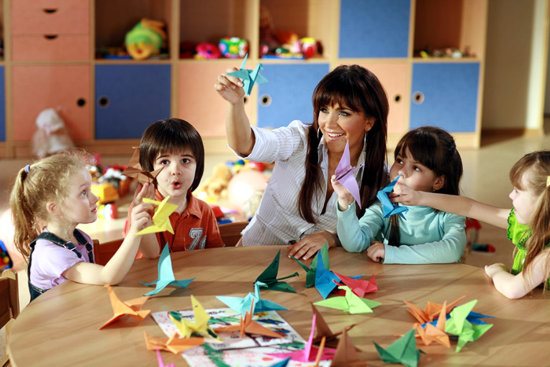
It is important to approach the issue creatively, to show imagination - only then will the lesson be effective and interesting for kids
The main areas of work to improve professional competence:
- awareness of innovations in the base of regulatory documentation related to the preschool educational level;
- familiarization with educational literature and methodological recommendations;
- awareness of the latest scientific achievements in the field of pedagogical thought, developmental psychology and child physiology;
- studying modern comprehensive and partial programs, the latest pedagogical technologies, proprietary methods, as well as the best practices of other preschool institutions;
- qualitative expansion of personal educational horizons, improvement of general cultural level.
Forms of self-education
Forms of self-education include the following types of activities:
- working with the library collection, reading special periodicals, monographs, creating your own thematic card index;
- fruitful work with other teachers in the framework of methodological seminars, scientific conferences, psychological trainings;
- seeking professional advice at educational centers for retraining and advanced training, at specialized departments of higher educational institutions;
- cooperation with the regional information center for psychological, diagnostic and developmental techniques.
The head of a preschool organization is faced with the task of creating a creative atmosphere that would encourage each teacher to self-education, awaken the desire to create, search, experiment, learn and help others. In the methodological corner, the senior teacher completes a fund of specialized literature to help educators:
- periodicals are systematized by year of publication and thematic collections;
- Each book from the library catalog is accompanied by an additional annotation with a list of issues that are considered by the author.
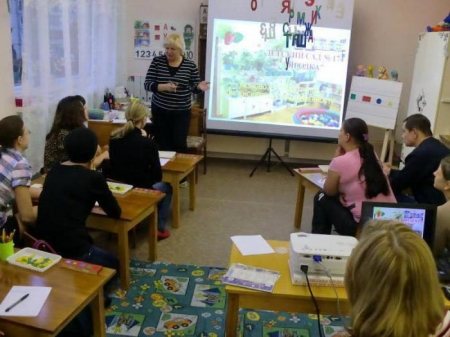
In our work, it is extremely important to introduce pedagogical innovations in order to raise a generation that meets the modern requirements of society
A senior educator, due to his experience and competence, can provide his less experienced colleague with the following methodological and advisory assistance:
- determine the topic, specify goals and objectives;
- plan your self-education work;
- competently present current information on the progress of planned events (games, classes, excursions, holidays, etc.) and actions (studying literature, consulting work with parents, preparing presentations and participating in practical seminars);
- summarize, analyze the qualitative and quantitative indicators of the work done.
Planned professional development of teachers takes place every five years in special courses, and in the period between courses, the independent work of each teacher, carried out under the patronage of a senior teacher or methodologist of a preschool educational organization, becomes relevant. Self-education of a teacher in a preschool educational institution must necessarily include the exchange of experience with other colleagues on issues of education and training, and the organization of the pedagogical process.
Key aspects of self-education
Teacher self-education activities can be divided into certain periods to simplify planning and subsequent analysis.
Table: structural content of self-education for kindergarten teachers
| Periods of activity | Teacher's actions | Area of competence of the senior educator/methodologist |
| Preparatory and diagnostic | Awareness of internal motivation for self-education, the need to expand professional horizons and areas of competence, defining goals and objectives. | Diagnostic research and multifaceted analysis of the teacher’s activities. Conducting an individual conversation and questionnaire in order to identify the range of professional interests, creative abilities and inclinations. |
| Planning | Selecting a topic, identifying important aspects, indicating the main stages, forms and methods of work, drawing up a long-term work plan. | Consulting and methodological support on issues that arise, depending on the experience and qualifications of the teacher. |
| Educational activities | Acquaintance with theoretical aspects and study of methodological literature on the selected problem. | Selection of educational and methodological literature, video recordings of master classes and classes, design of a thematic stand and exhibition with visual material. |
| Practical activities | Preparing and conducting classes, games, projects with children, producing additional teaching aids. | Attending classes, diagnosing and assessing the practical experience of the teacher. |
| Summarizing | Filling out a workbook about the theoretical preparation done and practical implementation experience, a report folder with data on the dynamics of children's results, organizing an exhibition of children's works, conducting a creative report or presentation. Final report at the pedagogical council, methodological seminar, conference for the exchange of experience. | Advisory assistance in documenting the results of the work done, replenishment of the information bank of methodological manuals. |
Tips for organizing self-education:
- it is advisable to have a special workbook and write down in it the most important innovative proposals of various educational methods, including proprietary ones;
- it is advisable to choose topics that will have practical implementation and will help in solving a real educational or educational problem;
- self-education involves forming your own judgments on a particular topic, so it is important to learn how to comprehensively analyze the issue being studied;
- In order to timely identify gaps in your own knowledge and adjust your actions, you need to seek advice and help from your colleagues.
Photo gallery: design of a self-education workbook (example)
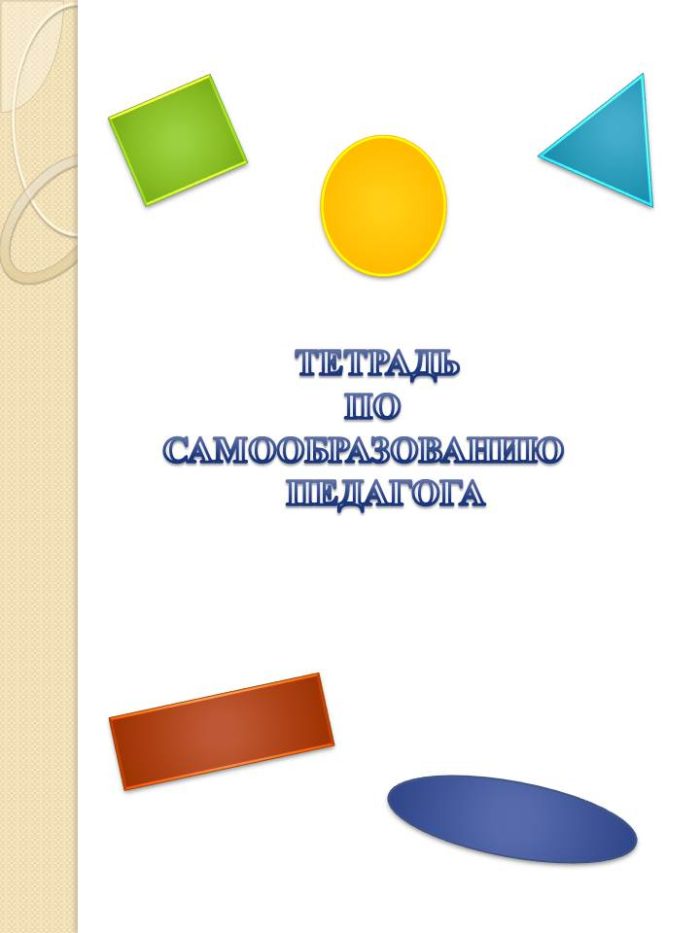
Cover
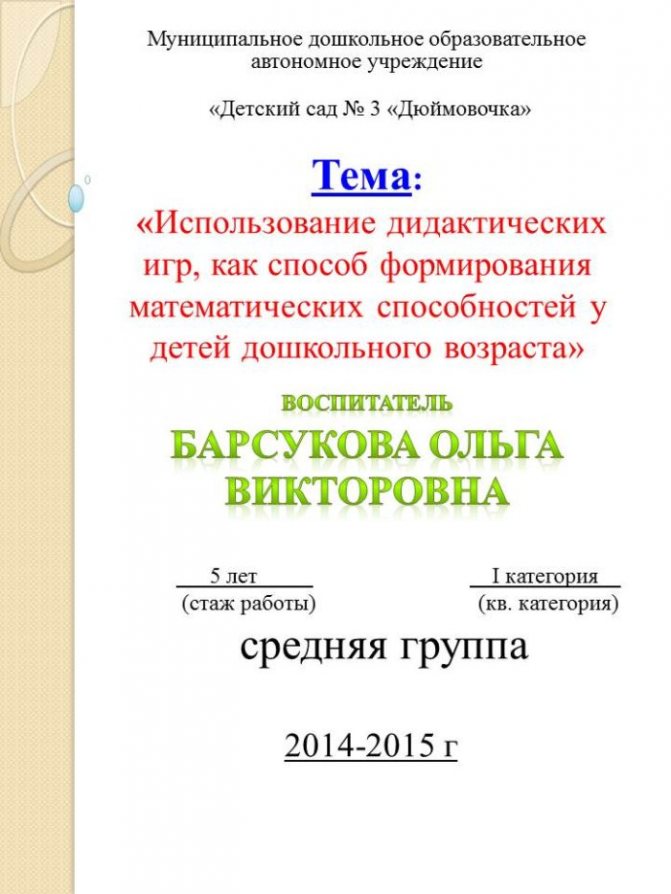
The topic must be specified
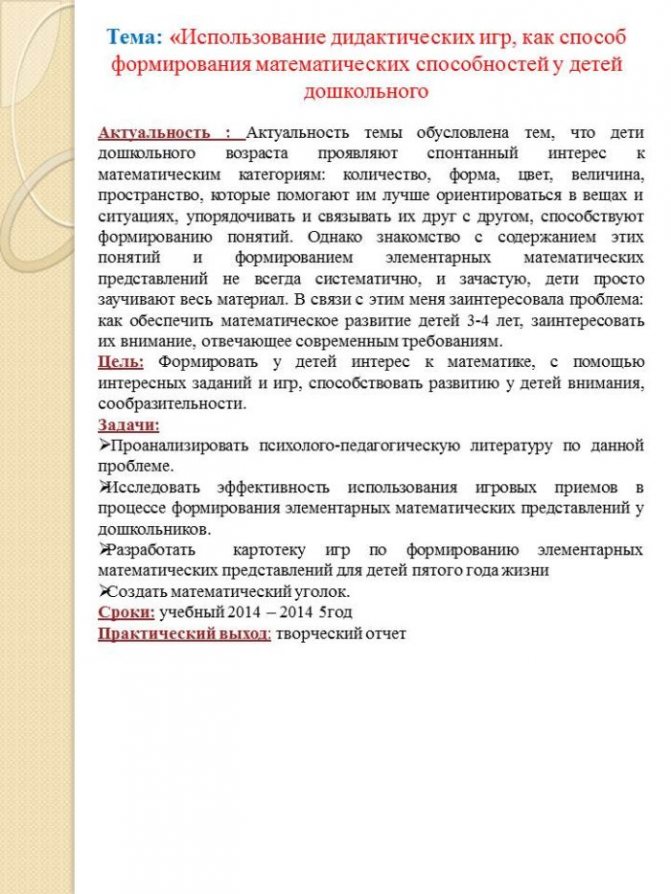
Justification of the relevance of the topic, goal setting
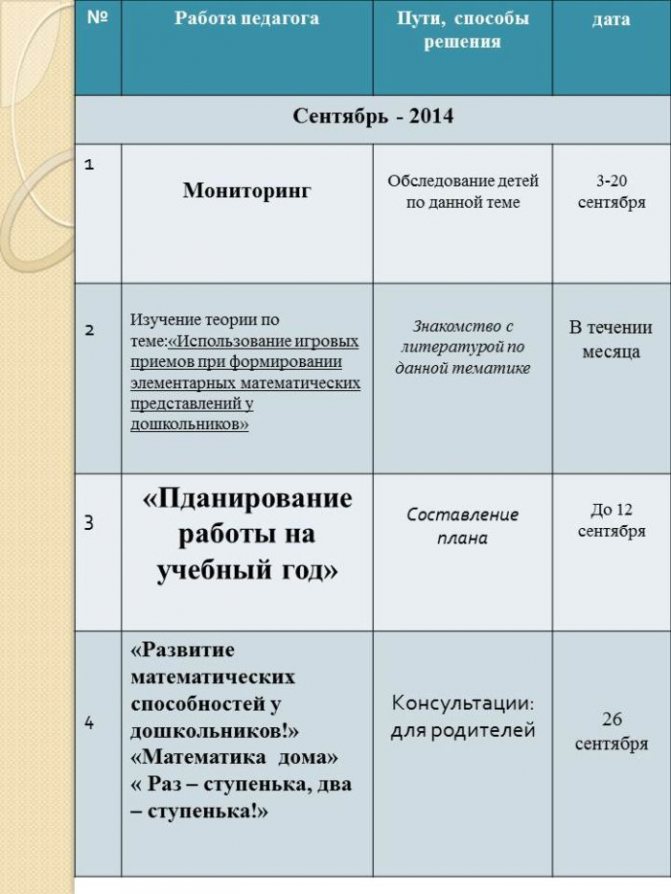
Work plan for September
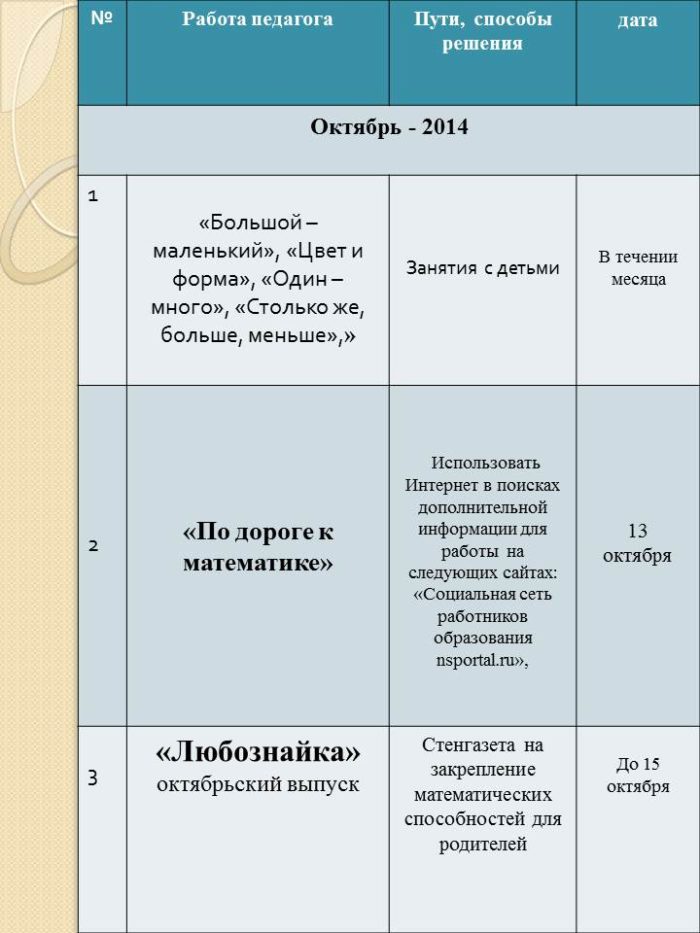
Work plan for October
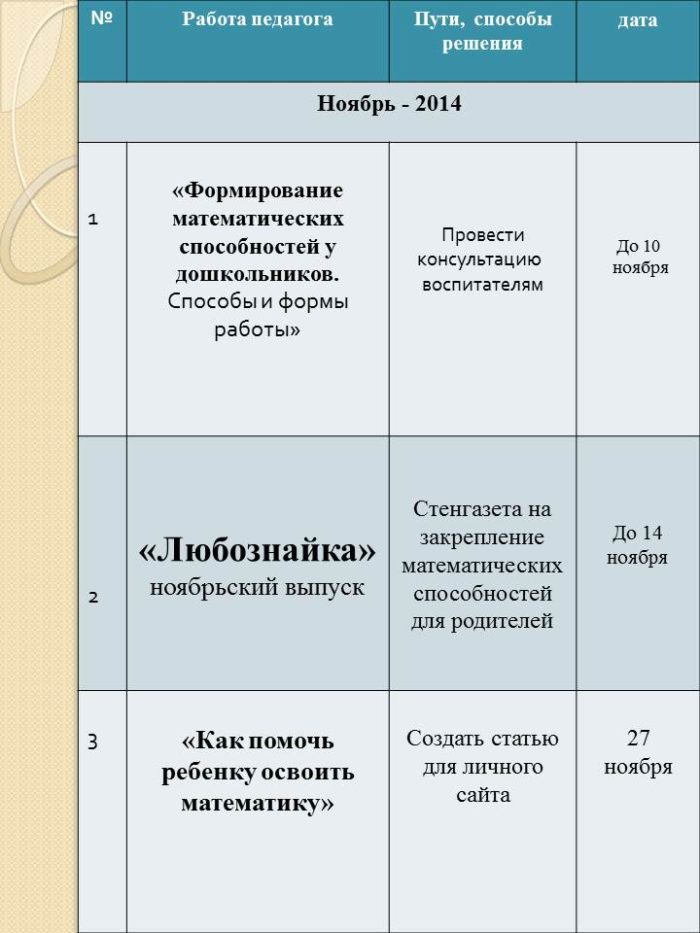
Work plan for November
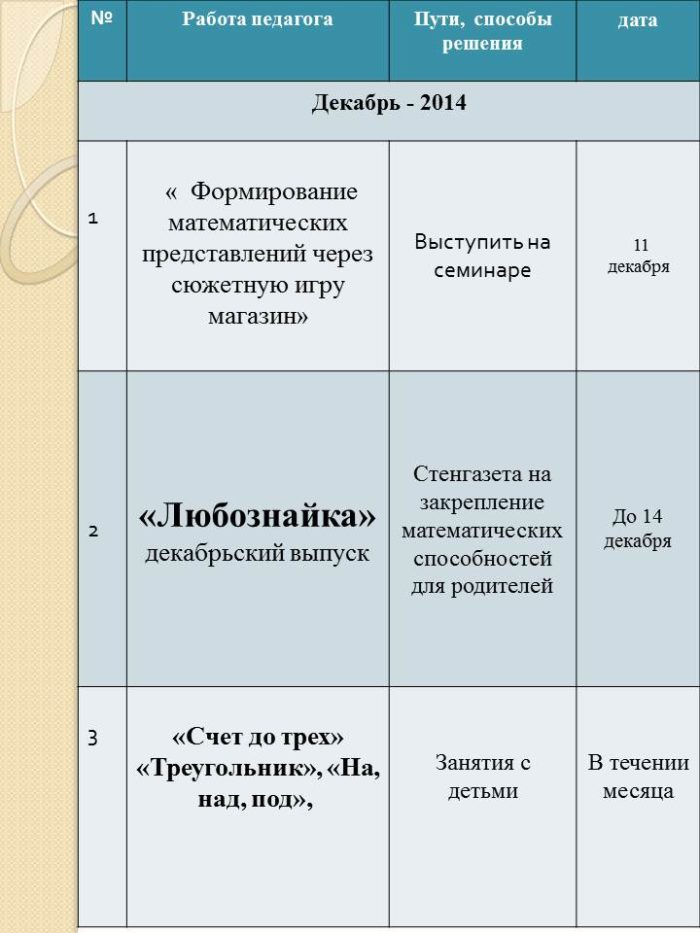
Work plan for December
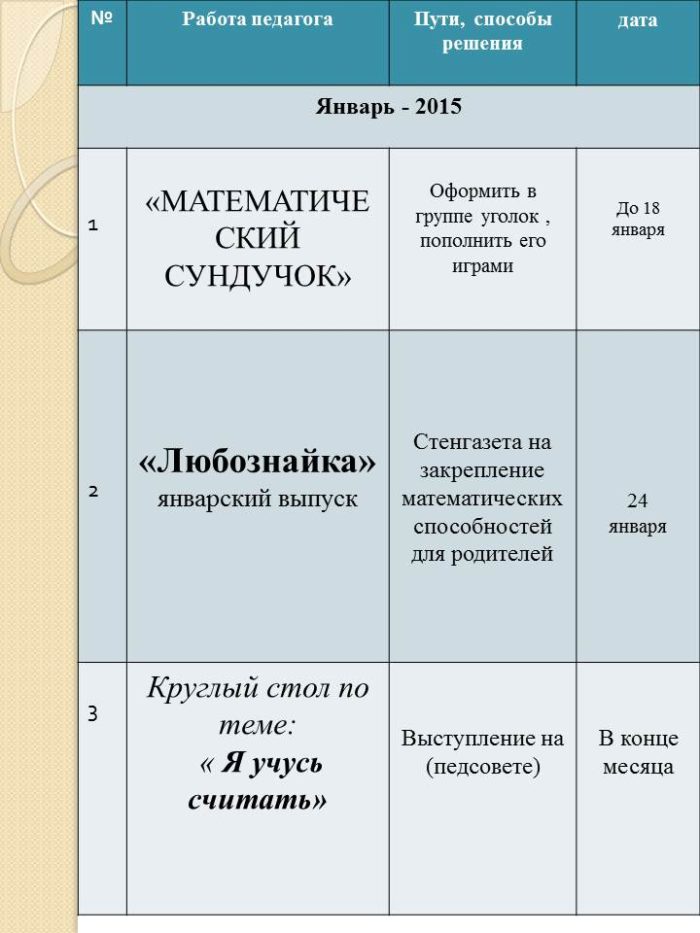
Work plan for January
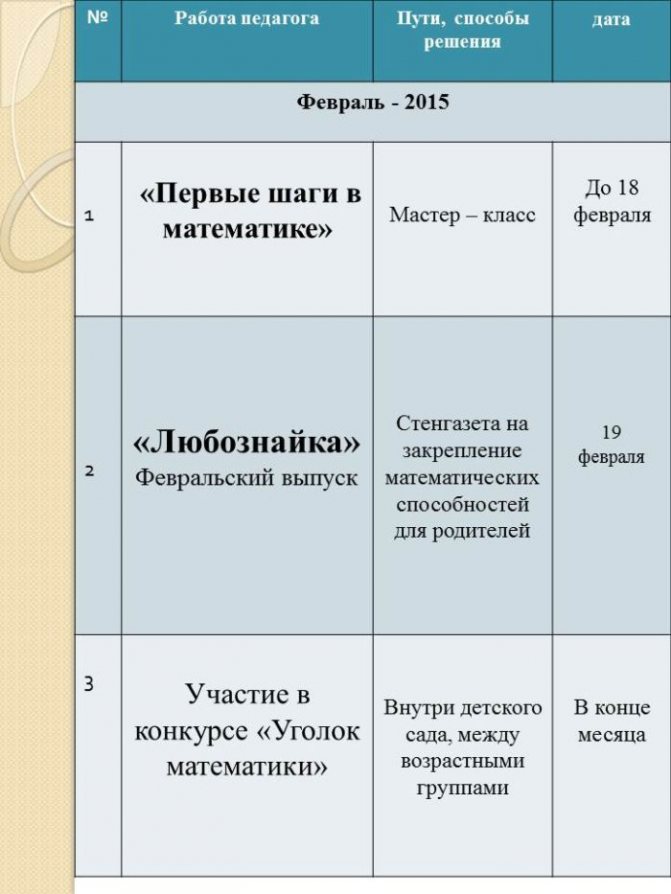
Work plan for February
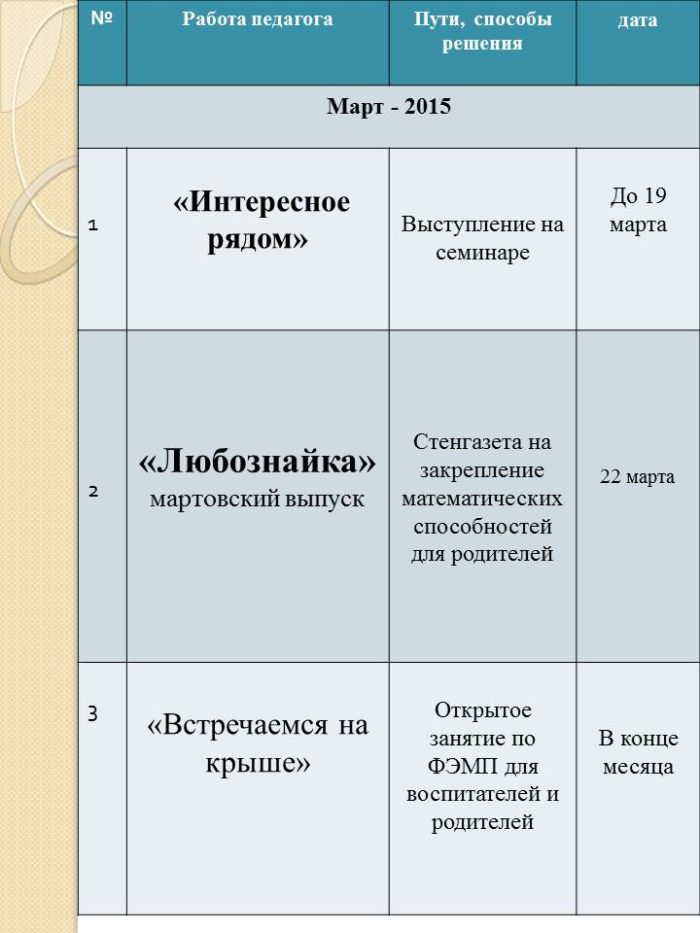
Work plan for March
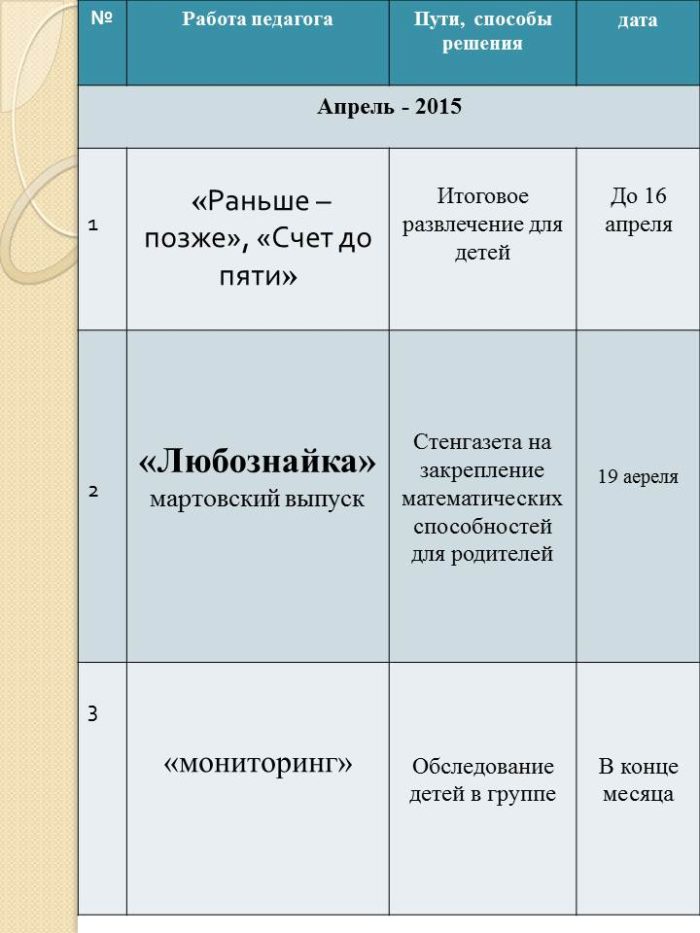
Work plan for April
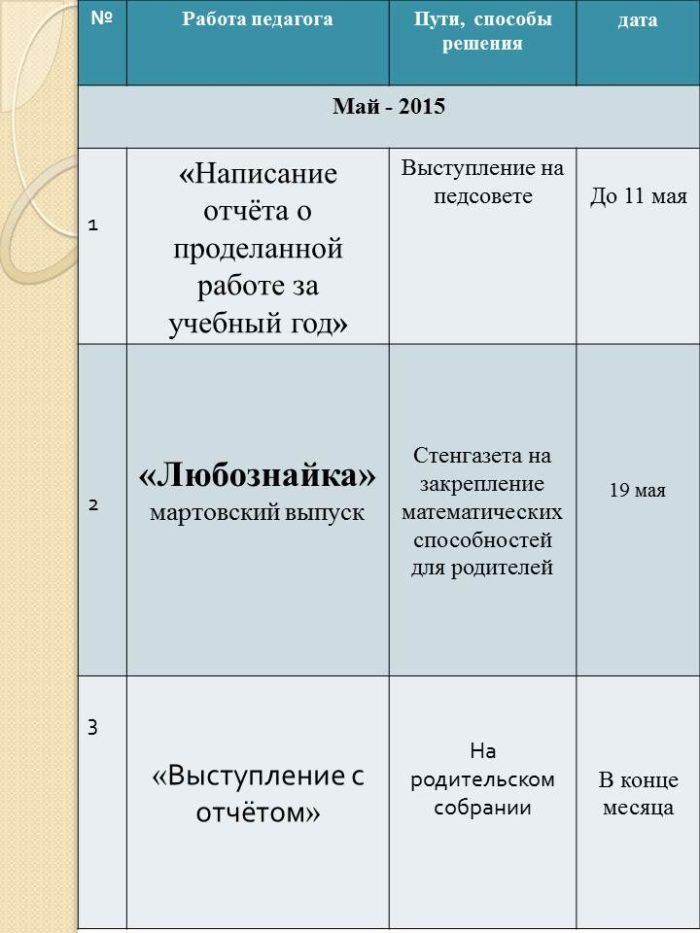
Work plan for May
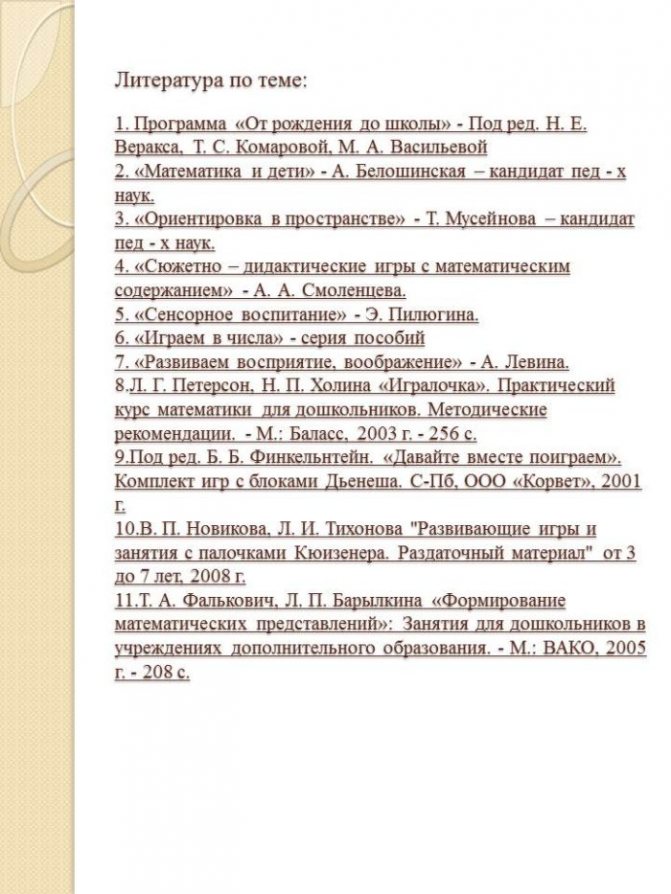
Bibliography
